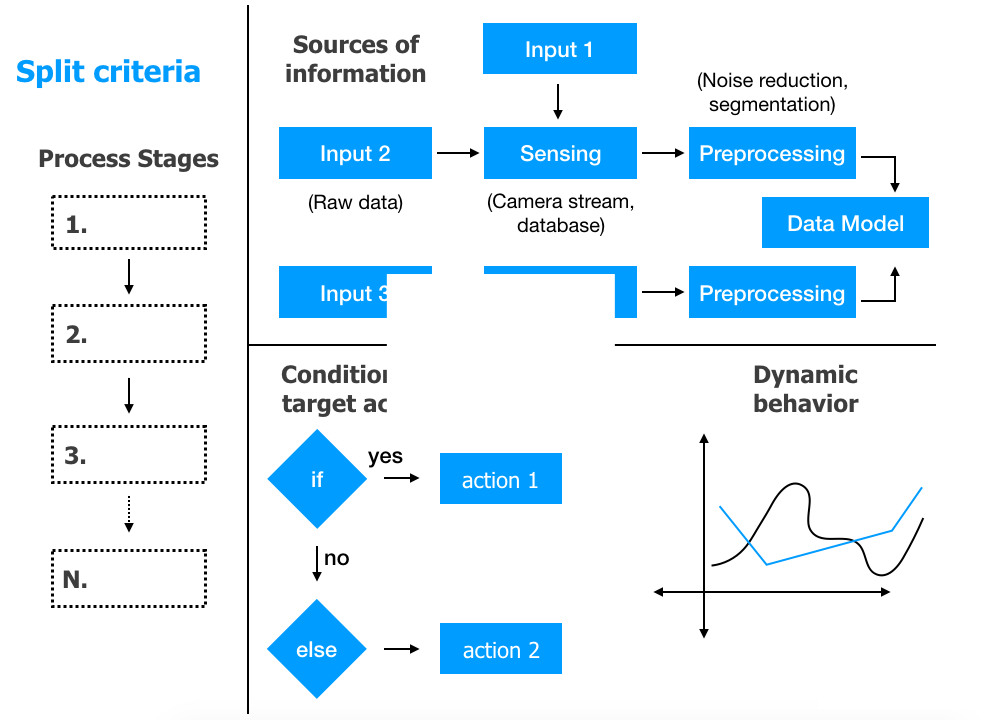Knowledge Systems Design – Artificial Intelligence Systems Design
Our experience has taught us the key elements necessary to deliver successful knowledge systems. This experience has been distilled into best practices that our consultants employ to implement knowledge systems for our customers. Our implementation best practices encompass performance metrics, task workflow, interfaces to existing business systems, and knowledge management processes. This holistic approach integrates knowledge systems into our customer’s business, with necessary support to ensure long-term effectiveness.
We primarily work in small project teams with our customers. Our consultants have experience in a broad array of customer organizations including real-time control operations, customer support, finance, scheduling and logistics.
The IT Researches approach to implementing knowledge systems has been developed and tested in a diverse set of industries. Our customers span a variety of industries including aerospace, process manufacturing, oil and gas, automotive, transportation, medical instruments, retail, and semiconductor. This diversity is a testament to the broad applicability of our best practices for corporate knowledge systems.
Our company stands ready to support your goals of delivering cost-effective knowledge systems to add value to your operations.
Customer Support Knowledge Base
The key goal of a customer support call center is to provide the correct information to answer a customer’s question or resolve their product problem. There are several Knowledge Management (KM) packages that directly address this key goal. IT Researches works with clients to identify the critical knowledge necessary for the call center. Working with our clients we identify a commercial KM package appropriate for their needs. We then work with our clients to configure and deploy the KM package to deliver the correct knowledge on demand from the call center agents . Typical benefits from this type of knowledge system are:
- Reduced escalation of support calls
- Lower warranty costs due to more effective repairs and reduced product returns
- Reduced number of unnecessary service calls
- Handling higher call volume for a given call agent team
- Reduced repeat customer calls
It is also possible to deliver knowledge directly to end-user customers through web interaction with a knowledge base. Providing direct access to the knowledge generates enormous value from the knowledge set. IT Researches is familiar with the process and tools for delivering knowledge content directly through the web. With proper planning and configuration a call center knowledge base can be extended out onto the web.
Control Operations Support
In process control operations, operators make decisions to control an industrial plant. There are two areas where knowledge systems typically provide value for process control operations, abnormal situation management and process optimization. In both of these areas knowledge is a key factor. In abnormal situations a knowledge system monitors multiple streams of data, recognizes a developing problem and alerts operators before the problem escalates. When trying to manage an abnormal situation, knowledge systems track many variables and suggest the best course of action to operators. Process optimization is another area where knowledge provides a powerful advantage. On-line knowledge systems monitor multiple parameters and employ subtle knowledge based control algorithms to yield better process performance than typical numeric control algorithms. The typical benefits of from these types of knowledge systems are:
- Avoiding abnormal situations
- Reducing production variability
- Support decision-making during abnormal situations
- Improved production yield
IT Researches is familiar with the commercial tools to implement these real-time control knowledge systems. In addition, IT Researches has developed fuzzy control software that can be integrated into real-time on-line control environments. Another important element in our solution is IT Researches’s knowledge elicitation process. IT Researches uses proven Cognitive Task Analysis (CTA) techniques to elicit, analyze and represent the knowledge needed in these real-time control environments.
Embedded Business Process Knowledge
Business processes are driven by human knowledge. Decisions made throughout a business process determine the quality of the business process results. Typical roles for knowledge systems in business processes include automating some decisions or automating analysis to support a human decision maker. Some tasks and knowledge in a business process can be automated . This knowledge automation can dramatically reduce the time required for a business process; it can also reduce the variability in process results. Some decisions within business processes are too complex or sensitive to completely automate. In these cases a knowledge system can support a human decision maker by automatically reviewing vast amounts of information, making useful inferences and ranking possible options (see case study: real-time delivery planning). The typical benefits of from these types of knowledge systems are:
- Faster business process
- Less variability in the process
- Reduced labor and training costs
- Improved business results due to better optimized decisions
There are a variety of knowledge representations that can be applied in business process knowledge systems. Business rules systems, fuzzy rules, and decision trees are all possible knowledge representations for business process knowledge. IT Researches uses proven Cognitive Task Analysis techniques to elicit, analyze and represent the business process knowledge. The result of this process is a determination of the best way to implement the necessary knowledge. IT Researches then works with customers to integrate the knowledge system into their business process.

